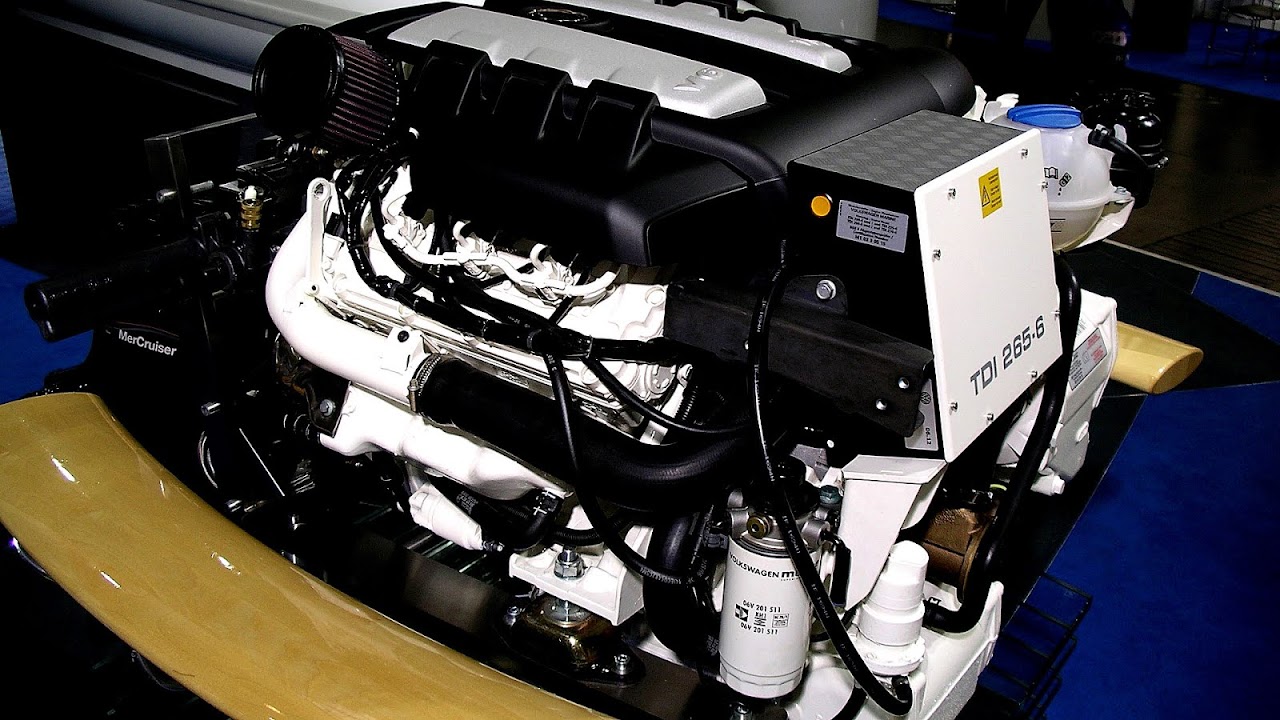
The SDI engine is a design of naturally aspirated (NA) direct injection diesel engine developed and produced by Volkswagen Group for use in cars and vans, along with marine engine (Volkswagen Marine) and Volkswagen Industrial Motor applications.
The SDI brand name (derived from "Suction Diesel Injection" or "Suction Diesel Direct Injection", the latter a translation of the German: Saugdiesel Direkt Einspritzung) was adopted in order to differentiate between earlier and less efficient indirect injection engines, called SD or "Suction Diesel", which were also produced by Volkswagen Group.
SDI engines are only produced in inline or straight engine configurations; and as they originate from a German manufacture, are designated as either R4 or R5, taken from the German: Reihenmotor. They are available in various displacements (from 1.7 to 2.5 litres), in inline-four (R4 or I4) and inline-five (R5 or I5), in various states of tune, depending on intended application.
The SDI engine is generally utilised in applications where reliability and fuel economy are of primary concern. These engines lack any type of forced induction, hence the use of 'suction' in the title, and as such, their power output is lower when compared with a similar displacement turbocharged engine. For example, the 2.0 SDI engine fitted to the Volkswagen Golf Mk5 has a peak power output of 55 kilowatts (75 PS; 74 bhp); whereas the same engine in Turbocharged Direct Injection (TDI) form is rated at 103 kilowatts (140 PS; 138 bhp) or 125 kilowatts (170 PS; 168 bhp), depending on specifications. This clearly shows that turbochargers provide more power and torque.

Maps, Directions, and Place Reviews
SDI engines and applications
Vw Marine Diesel Video
Lubricants
Like their related Volkswagen Group Turbocharged Direct Injection diesel engines, Volkswagen AG requires that motor oil lubricants for SDI engines must only meet VW505.00, 505.01, 506.00, 506.01, or 507.00 officially approved standards. 'Generic' oil standards such as the American Petroleum Institute 'API', or European Automobile Manufacturers Association 'ACEA' are not recognised, nor approved by VW - so oils bearing these generic approvals must not be used, except when the oil has also been granted one of the specific VW approvals.
Many formulations of motor oils from most brands are now "VW Approved" to the above standards. However, there does exist a few unapproved 'off brands' that print the VW number on the label, effectively 'claiming' to meet the said standard, but hide in small type the word "recommended". Volkswagen AG only carries out in-house testing on motor oils to grant the necessary approvals; if Volkswagen AG, therefore, has not carried out such tests (or if a submitted oil has failed their tests), Volkswagen AG will not grant approval. Volkswagen Germany (and Volkswagen of America) freely publish up-to-date lists of currently approved oils on their respective websites, along with the technical resource, erWin. Volkswagen AG does not permit any independent testing facility to grant their own VW standards.
All SDI-engined models with "LongLife Servicing", "Extended Service Intervals", "ESI", or "WIV", must be run on official 'LongLife' lubricants, namely VW506.00 (for non-PD), VW506.01 (for PD), or the very latest VW507.00. Again, other 'generic' longlife lubricants (or those longlife standards granted by other manufacturers such as General Motors, BMW or Mercedes-Benz) should not be used, unless they also have the official relevant VW LongLife approval.

SDI vs other VW Group diesel engines
The following table contains a selection of current and historical Volkswagen Group compression-ignition SDI diesel engines for comparison of performance and operating characteristics with other naturally aspirated and forced induction engines of the same capacity:
Source of the article : Wikipedia








EmoticonEmoticon